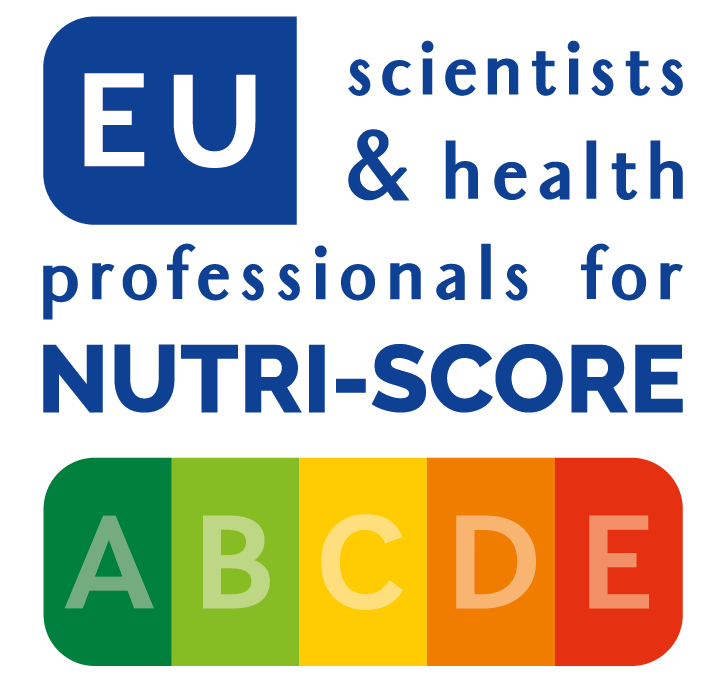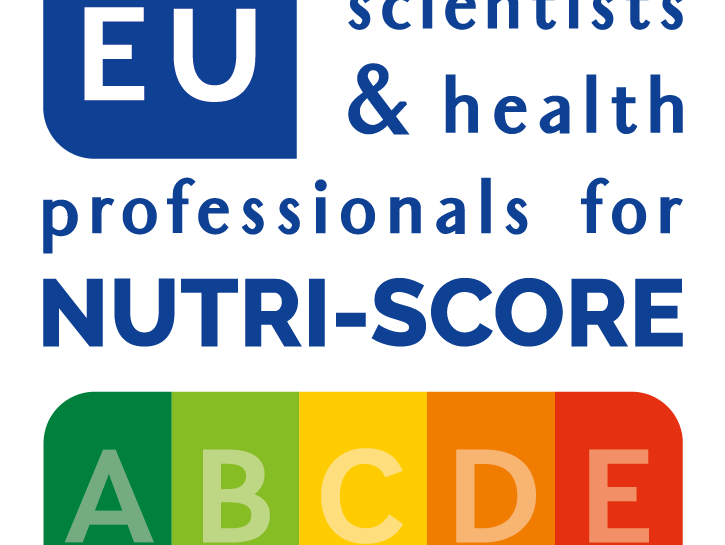
ADVOCACY FOR THE IMMEDIATE AND MANDATORY IMPLEMENTATION IN EUROPE OF THE FRONT-OF-PACK NUTRITION LABEL NUTRI SCORE, A SCIENCE-BASED PUBLIC HEALTH TOOL
While the European Commission has committed, as part of its “From Farm to Fork” strategy, to propose a harmonized mandatory nutrition labelling for all of Europe by 2023, lobbies are mobilized to prevent Nutri-Score to be chosen and do everything to push for no label to be chosen or at least to delay its choice as long as possible.
Today the adoption of the Nutri-Score is really threatened!
The joint pressure of large food companies opposed to Nutri-Score, of certain agricultural sectors (especially the cheese and processed meat sectors and their powerful European representation COPA-COGECA), the involvement of various political parties and of politicians close to the lobbies, and the lobbying actions of the Italian government (accelerated since the last elections in this country), using the most absurd and dishonest fake news seems unfortunately be efficient at the level of the European Commission. The lobbies have succeeded in the last months in spreading at the European level their misleading arguments, totally denying scientific evidence through platforms, think tanks, associations (even managing to infiltrate existing NGOs), web media, lobbying firms and events organised by permanent representations of certain states at the EU level.
However, there are strong arguments in favour of choosing the Nutri-Score
– The numerous scientific studies performed over many years in some 20 countries that validate the algorithm underlying the Nutri-Score calculation (including cohort studies involving more than 500,000 subjects with long-term follow-up) and its effectiveness to help consumers make healthier food choices (including studies in virtual supermarkets, experimental stores and real supermarkets). More than a hundred studies have been published since 2014 in international peer-reviewed journals demonstrating its effectiveness and superiority vs other labels, particularly in disadvantaged populations,
– The recent update of the Nutri-Score by a scientific committee composed of independent European experts which will enter into application in 2023 and which will allow to improve certain identified limits of the Nutri-Score and to reach a better alignment of the Nutri-Score with public health nutritional recommendations,
– The conclusions of the recent report of the EC Joint Research Center (published in September 2022) highlighting that consumers, including consumers with lower income, appear to prefer simple, colourful and evaluative summary front-of-pack labels, which are more easily understood, than more complex, non-evaluative, monochrome labels. Nutri-Score checks all the boxes in terms of positive characteristics regarding its usefulness and effectiveness, as it is classified by the JRC as a simple synthetic, color-coded, evaluative nutritional label,
– The results of the public consultation launched by the EC between December 2021 and March 2022 that showed that consumer associations, citizens, NGOs, research and educational structures, and public authorities supported a label providing gradual information on overall nutritional quality of foods (which corresponds totally to the characteristics of the Nutri-Score). Not surprisingly, economic stakeholders or trade associations preferred other options or were opposed to any of the proposed options…,
– The support from consumer associations (including the BEUC composed of 46 independent consumer organisations from 32 European countries) and NGOs such as FoodWatch present in different European countries,
– Its formal adoption and implementation in 7 European countries (France, Belgium, Germany, Spain, The Netherlands, Luxemburg, Switzerland) demonstrating the feasibility of its deployment and the fact that it is strongly supported by consumers,
– The scientific answers given to questions that can be legitimately raised about Nutri-Score but that are often misused and exploited as fake news by lobbies (see Annexes).
Worrying statements by the EC concerning the choice of the future mandatory nutritional label for Europe
Despite the accumulation of scientific and societal arguments in favour of the Nutri-Score, recent statements of some EC officials have just hinted that the EC might not retain Nutri-Score… What is the reason emphasized for that? According to a declaration of a DG-Health official, Nutri-Score would not be adopted at the European level because it would be too « polarizing » when in fact it is opposed by lobbies. No scientific or public health argument supports this statement but a curious argument is put forward: Nutri-Score is not acceptable because it would be opposed by economic and political lobbies. These statements by EC officials in recent weeks suggest that the EC may give in to pressure from agri-food lobbies (as they have recently done regarding the chemical industry lobby). Under the pressure from lobbies, the decision-making schedule has already been postponed from the end of 2022 to the end of the first quarter of 2023. Invoking a “complex” situation, but especially because of the violent opposition of Italy which defends the commercial interests of some of its agri-food industry sectors («the protection of Made in Italy» products) and proposed its own non-interpretive label – Nutrinform – very similar to the industrial GDA/RI model launched in the 2000s (about which numerous works have shown the total inefficiency), the EC is holding a worrying discourse (on the same line of the arguments of the lobbies) on the need to define a new nutritional label for Europe. This is a total negation of current scientific evidence regarding front-of-pack nutrition labels in the EU context. More worrying, developing a new label and testing it adequately would take several years without clearly seeing any leads for a label which performance would be higher than that of the Nutri-Score (especially the new version updated at the European level in July 2022). In fact, lobbies are pushing for no label to be chosen at the European level or at least to delay the choice as long as possible.
Facing the threat of this public health measure by the lobbying actions of economic and political actors, it is essential to react and act towards the European Commission.
Considering the risk of postponing the choice of a mandatory nutrition label for Europe or the adoption of a nutrition label not based on scientific evidence, it is essential that scientific and health actors mobilize to make their voices heard in the current debate. A way of action would be to address an open letter to the EC (accompanied by a detailed scientific report, complementary to the one from the JRC) that would be endorsed by hundreds or thousands of European scientists, (public) health professionals, consumer and healthcare user organisations, academic societies, NGOs and so on. This official letter and report could be published in several national newspapers and on European blogs. It would also be useful for each national association or society to mobilize at the national level.
This mobilisation will aim to remind European authorities of the necessity to make mandatory in Europe a front-of-pack nutrition label based on science (which is the case of Nutri-Score) taking into account the public health challenges that Europe is facing and particularly the development of nutrition-related chronic diseases (such as obesity, cardiovascular diseases, diabetes, hypertension, cancers, etc.). It is clear that the implementation of a front-of-pack nutrition label such as Nutri-Score on a mandatory basis (to allow it to be displayed on all foods) will not solve by itself all nutrition-related problems but will contribute (as it has been scientifically demonstrated) to improve the nutritional situation and the health of the population. Even if Nutri-Score is based on an extremely solid scientific background, it is only one element of a public health nutrition policy, but it is considered to be an effective tool to help consumers to make healthier food choices at the point of purchase and to create a healthier food environment.
Join the mobilization! Public health and scientific evidence must prevail over the defence of purely economic interests in Europe!
